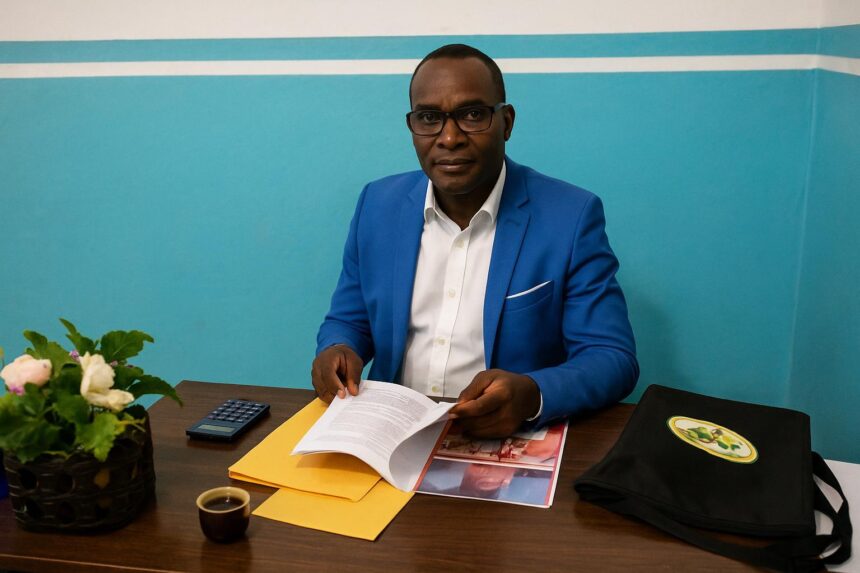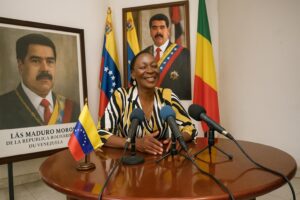Niamey forum puts colonialism on trial
Standing before diplomats, clerics and civil-society leaders in Niamey, Pan-African Peace Consortium coordinator Dr Ernest Nounga Djomo delivered a forceful plea: recognise colonialism as a crime, demand reparations and stem the perilous exodus of young Africans toward Europe.
His speech during the newly established Provisional Commission on the Migration Crisis linked historic dispossession to today’s unemployment and poverty, arguing that compensation funds could finance start-ups, apprenticeships and modern farms across the continent, giving graduates reasons to dream at home rather than on Mediterranean dinghies.
Historic wounds linked to youth exodus
‘Africa deserves an indemnity for the damage done to colonised states,’ he told the room, insisting that criminal proceedings against former colonial powers would deter what he called ‘new forms of colonisation’ and send a moral message to traffickers who prey on despairing youths.
The Brazzaville-born academic paid tribute to Niamey’s Grand Imam and Archbishop, urging religious leaders to amplify the call for solidarity, peace and sustainable livelihoods, while cautioning against blaming migrants themselves for crossing the Sahara or the Atlantic in search of dignity.
Reparations blueprint gains cautious traction
Government representatives, diplomats, NGOs and technical partners gathered for the one-day meeting, the first step in a continental consultation process scheduled to continue in Lomé and Addis Ababa early next year, before Africa presents a common position on irregular migration at global forums.
Several speakers highlighted official data from the International Organization for Migration showing that over 28,000 Africans have died or disappeared on sea routes to Europe since 2014, with thousands more stranded in detention centres across Libya, Tunisia or the Canary Islands.
For Dr Nounga Djomo, those grim numbers are symptoms, not causes: ‘Our youth do not wake up wanting to risk their lives. They do so because centuries of extraction left classrooms overcrowded, factories idle and rural roads impassable,’ he maintained, drawing nods from the audience.
Legal and economic hurdles outlined
Niger’s Labour Minister Maman Garba acknowledged the link between lack of decent jobs and departures but observed that criminalising colonialism would require complex legal steps at the African Union and the International Criminal Court, institutions where geopolitical bargaining often slows down bold resolutions.
Economic analysts in attendance proposed an initial reparation fund capitalised by voluntary contributions from former colonial states, multinational companies and the African diaspora, while continental parliaments work on a binding framework. ‘We can turn apologies into seed capital,’ economist Djénéba Sow argued after the session.
Some civil-society voices welcomed the idea yet insisted that domestic governance must improve in parallel, warning that reparation money could evaporate without transparent budgeting, local content requirements and inclusive monitoring committees drawn from youth associations, trade unions and traditional authorities.
Brazzaville voices add perspective
In Brazzaville, reactions filtered in via social media throughout the evening. Student leader Josué Disimba praised the Niamey declaration, saying it ‘puts history back on the table’ and could give Congo’s engineering graduates leverage to design solar mini-grids instead of queuing for visas.
Congolese historian Professor Clarisse Ngakala, reached by phone, cautioned that reparations debates often meet with scepticism in European capitals, yet she believes the mere prospect can shift narratives: ‘Once you name colonialism as a crime, you legitimise African agency in migration talks.’
Draft charter and mobility solutions ahead
The Commission plans to circulate a draft charter before December, mapping colonial crimes, listing potential defendants and estimating losses in agriculture, minerals and human capital. A public online portal will allow citizens to add testimonies, photographs and archival records to strengthen admissible evidence.
Parallel working groups will explore fast-track visas for circular migration, expanding the African Continental Free Trade Area to boost regional mobility, and launching digital platforms that match young professionals with remote contracts in fintech, coding and design, limiting the pressure to reach European shores.
Organisers say the next forum will feature a job fair and a showcase of inventors from Pointe-Noire to Kampala who turned small grants into scalable ventures, proof, they argue, that opportunities at home can talk louder than smugglers’ promises whispered across desert checkpoints.
Regional scholars and online activism
For now, Dr Nounga Djomo’s proposal resets the conversation: migration management is no longer just a matter of border patrols but of historical justice. Whether the world is ready to legislate on the past may define how many future journeys end in tragedy.
Legal scholars at the University of Kinshasa reminded participants that crimes against humanity have no statute of limitations, suggesting that a Pan-African class action could be filed even if individual claimants vary by region. Their memorandum will be reviewed during the Lomé round.
Meanwhile, social networks lit up with the hashtag #ReclaimOurFuture, where artists posted illustrations linking historical looting of copper, timber and ivory to contemporary talent drain. One viral cartoon showed a graduate swapping a diploma for a lifebuoy, captioned ‘Degrees don’t float, reparations do’.






















